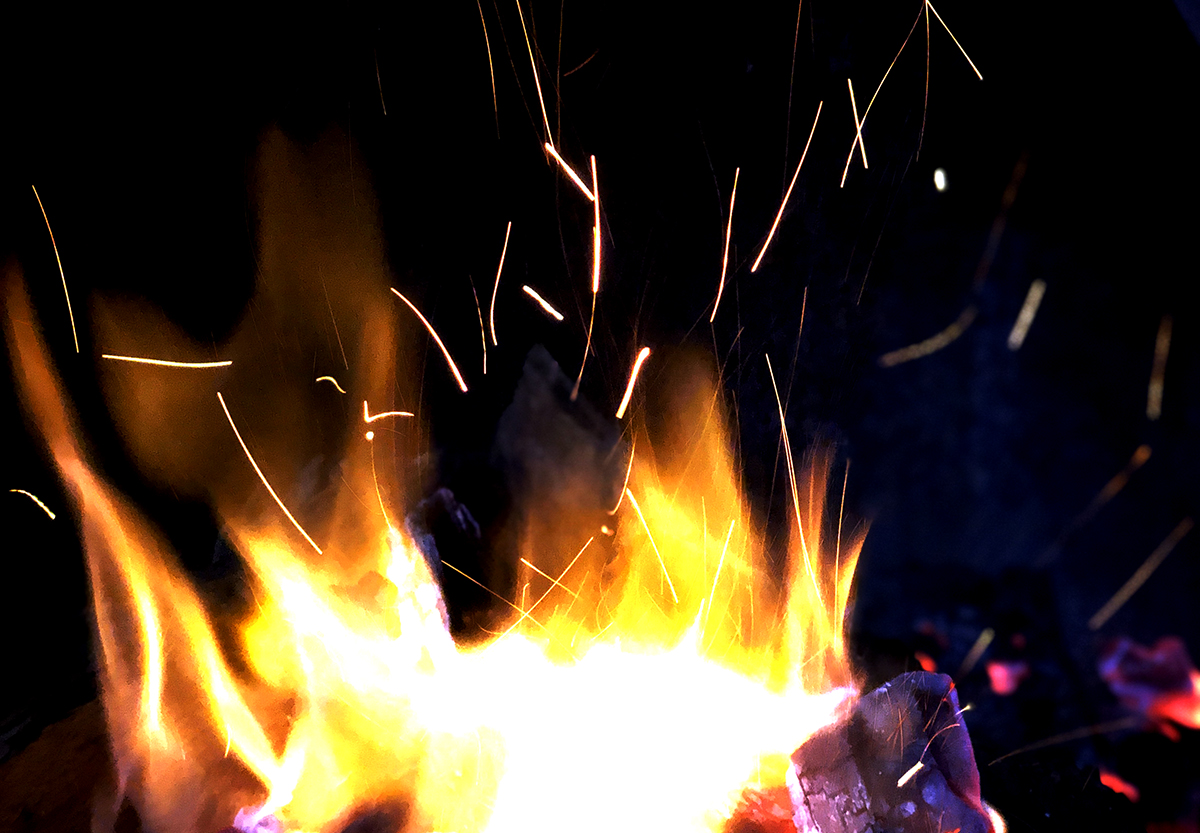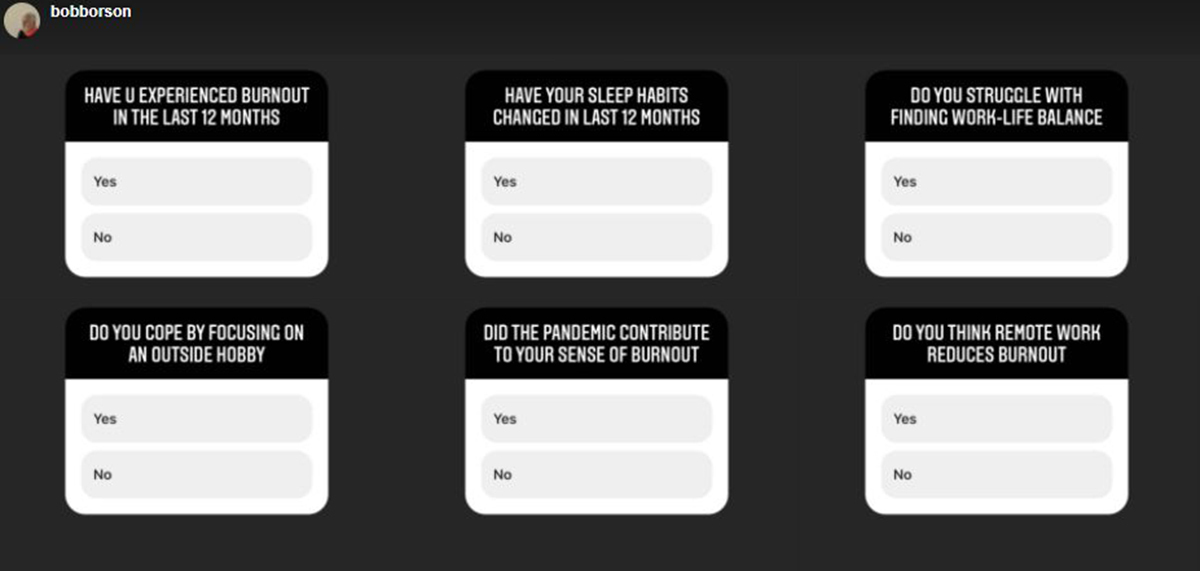We have all experienced it at one time or another, and for some people, they seem to experience it all the time. Architecture is a profession that seems to require more than its fair share of 40+ hour weeks so it only seems reasonable that we would dedicate a show to this topic. Welcome to Episode 97: Burnout
[Note: If you are reading this via email, click here to access the on-site audio player]
Podcast: Embed
Subscribe: Apple Podcasts | Spotify | Android | iHeartRadio | TuneIn

I wanted to dedicate a show to the topic of burnout because I am suffering through it as much as anyone – sometimes I feel like I go through these patches more than most because I typically work 50+ hour weeks and in my spare time, I log in another 20+ hours writing blog posts and recording podcasts. I don’t have a problem (for the most part) with working long hours from time to time but I would imagine that I have logged at least 70 hours a week for the last 12 years and I think I am finally ready to say that it’s taking its toll on me. What I find slightly interesting is that I bring this on myself since I don’t HAVE to write a blog post every week but for the most part I have missed only a handful of self-imposed deadlines over the past 624 weeks.
So what exactly is “Burnout”? jump to 5:54
I feel like we need to make a distinction that “complaining” about burnout is not the same as complaining about your job. So let’s give it a working definition to start our conversation. According to the Mayo clinic:
Job burnout is a special type of work-related stress — a state of physical or emotional exhaustion that also involves a sense of reduced accomplishment and loss of personal identity. “Burnout” isn’t a medical diagnosis. Some experts think that other conditions, such as depression, are behind burnout.
Job Burnout Symptoms jump to 7:05
- Have you become cynical or critical at work?
- Do you drag yourself to work and have trouble getting started?
- Have you become irritable or impatient with co-workers, customers or clients?
- Do you lack the energy to be consistently productive?
- Do you find it hard to concentrate?
- Do you lack satisfaction from your achievements?
- Do you feel disillusioned about your job?
- Are you using food, drugs or alcohol to feel better or to simply not feel?
- Have your sleep habits changed?
- Are you troubled by unexplained headaches, stomach or bowel problems, or other physical complaints?
Andrew and I went through this list and we were about 50/50 on demonstrating some of these symptoms. To my way of thinking, some of the symptoms are far more serious than others and represent more of a red flag than others, but it is probably a good idea to keep an eye any time these conditions start to present themselves. As we worked our way through this list, we discussed how it can be difficult to assign a root cause for these symptoms, and in order to work your way back to a healthier place, understanding what conditions need to be addressed can be difficult.

Job burnout risk factors jump to 13:44
According to the Mayo Clinic, the following factors may contribute to job burnout:
- You have a heavy workload and work long hours
- You struggle with work-life balance
- You work in a helping profession, such as health care
- You feel you have little or no control over your work
These are obviously not specific to the profession of architecture – particularly the 3rd bullet point, although some might want to argue that we are in a “helping profession”. Items #1 and #4 are the ones that get brought up the most often, so in my mind, struggling with a work/life balance is a more interesting conversation. I wrote a post 7 years ago, which in the context of today’s topic, is extremely interesting. It is titled Work/Life: Different Letters Same Word and as I went back to read it, it tells a tale that is shockingly similar to the circumstances that many people find themselves in these days. I tend to talk more frequently about equilibrium being more important than balance because work + life have an ebb and flow to them that shifts focus and priorities at different stages of your life. It might not be a big deal for you as a 20-something to put in a 60 hour week (as I did many times) whereas the 40-something sitting next to you might have additional obligations that require their attention. I suppose the point is there is no magic number that equals balance (or equilibrium) and what works for you now will most likely change in the not-so-distant future.

Have you felt burnout before? jump to 18:10
I’ve had a pattern of working a lot my entire professional life and I think it’s because of the work ethic my Dad scared into me when I was little. There was no sitting around in my house. After 97 episodes I can’t remember if I’ve shared this story before but here is an example:
When I was a kid, probably around 8-years-old, I was sitting on the couch watching television when my Dad walked by and asked me what I was doing. When I said I was (obviously) watching TV, he responded by saying “Don’t you have something else to do?” My 8-year-old brain thought that I had him because I had already done all my chores so I had earned the right to sit around and do nothing.
My Dad responded by asking me to follow him into the backyard where he told me that he wanted me to dig a hole – this wide by this deep … and then come get him once I had completed my task. I dug the hole, which took about a half-hour, and then went and told my Dad that I was finished. He came out, examined the work, and then told me to dig another hole the same size, pointing to the spot where he wanted it dug, and told me to take the dirt from this second hole and fill the first hole that I had dug. Confused, I said “What?” He said “just do it and come get me when you’re done.”
30 minutes later I went and got my Dad and he once again examined my handiwork. He then proceeded to tell me to dig a third hole and fill the second hole I had just dug …
I asked “What is going on here?” and he simply said, “Do you still need something to do?”
As I said, there was no sitting around in my house – there is always something to be done. There is no doubt that this particular button my Dad installed in my has played a role in my life and defined my opinion on how you should be spending your free time … by doing more work.
“Burnout” is a pattern of behavior that I have demonstrated almost my entire life and chances are better than zero that it has been an intentional state. While there has been an ebb and flow to it, I don’t think I would know what to do with myself if I wasn’t working.

Handling job burnout jump to 23:48
Not surprisingly, the steps you take to attend to job burnout seem incredibly obvious – which automatically suggests to me that maybe these steps are not the smoking bullet we would all like them to be.
- Evaluate your options. Discuss specific concerns with your supervisor. Maybe you can work together to change expectations or reach compromises or solutions. Try to set goals for what must get done and what can wait.
- Seek support. Whether you reach out to co-workers, friends or loved ones, support and collaboration might help you cope. If you have access to an employee assistance program, take advantage of relevant services.
- Try a relaxing activity. Explore programs that can help with stress such as yoga, meditation, or tai chi.
- Get some exercise. Regular physical activity can help you to better deal with stress. It can also take your mind off work.
- Get some sleep. Sleep restores well-being and helps protect your health.
- Mindfulness is the act of focusing on your breath flow and being intensely aware of what you’re sensing and feeling at every moment, without interpretation or judgment. In a job setting, this practice involves facing situations with openness and patience, and without judgment.
Now that you’ve seen the list, are you surprised by any of the suggestions being made to help? No, I didn’t think so because what to do isn’t the hard part, it’s doing them that is the challenge. Sometimes it’s a matter of finding the time and other times it’s about finding the courage.

Poll on the state of Burnout via Instagram jump to 34:24
Total respondents after 7 hours fluctuated between a low of 567 participants and a high of exactly 600, which I think creates a pretty data set. In addition, the ages of the respondents, outside of a few people who were younger than 24, fell into the following range.
376 respondents were between the ages of 24-35
155 respondents were between the ages of 36-45
42 respondents were between the ages of 46-55
10 respondents were between the ages of 55+
Let’s take a look at the results …
Question 01:
Have you experienced Burnout in the last 12 months? 86% said yes
I was not surprised by this answer and neither was Andrew. Everyone in our industry is busy right now and has been for quite a long time. The challenges associated with the pandemic and “The Great Resignation” is being felt by everyone who is still sitting at their desk and working.
Question 02:
Have your sleep habits changed in the last 12 months? 75% said Yes
I should have clarified whether or not this meant more or less sleep.
Question 03:
Do you struggle finding work/life balance? 79% said Yes
There is too much work in place right now and there are always demands on our time and something has to give. Everyone seems to be available all the time and the boundary between work time and personal time is blurred and working from home is NOT helping this situation.
Question 04:
Do you cope by finding an outside hobby? 61% said yes
I interpreted this question as meaning do hobbies help you cope with burnout and not whether or not you had time for hobbies. I am a poor indicator of how to answer this question because I don’t think I’ve had a real hobby since I started writing this blog.
Question 05:
Did the pandemic contribute to your sense of burnout? 68% said Yes
We were completely surprised that this number was not higher. I assumed it would be simply based on my own experience. Pandemic meant working from home and working from home (to me) means I worked even more and had fewer boundaries in place that isolated work and personal time.
Question 06:
Do you think remote work reduces burnout? 51% said NO
The majority, even though it wasn’t by much, don’t think that working from home helps to avoid getting burned out. Given the optics that so many people seem to want to work from home, I was surprised that there wasn’t really a runaway winner here.

What contributes MOST to your sense of burnout?
This one actually required people to type out a response and as of this recording, I had 178 people weigh in with their opinions. I’ll list just a few of them down below but I don’t think you will be surprised by any of the answers that came in:
- work from home never seems to end when actually working from home
- work Stress
- projects that go on forever
- the ability to work remotely has led to a sense of entitlement of all my time
- small separation between work and life
- understaffed projects
- feeling obligated to be available 100% of the time
- not saying no to jobs I shouldn’t take
- 50+ hour weeks and not accomplishing goals
- relentless deadline pressure with little empathy from management
- absurd expectations of productivity
- the constant demand for overtime with zero additional compensation
- too much on my plate and it all has to be done now
- not enough staff
- always being behind
… and it goes on for another 163 responses with very little deviation from this pattern. People are working a lot and it is affecting their sense of identity and ability to function and contribute to their well-being. I feel like I should point out that I am assuming that the people who are currently loving life probably didn’t vote in this survey.
I am going to get destroyed for my answer in this episode of “Would You Rather”, but I think it makes for a more interesting conversation.

Would you rather? jump to 48:05
Would you Rather be the smartest, wealthiest, most beautiful, or most famous person in the world?
There are a few conditions to this question that will make it more challenging because as stated, it is a fairly boring question and there is only one answer that doesn’t make you sound like a jerk. If you think choosing “wealthiest” is the right answer, the condition is that you can’t do anything charitable with the money. The other condition is that whichever answer you choose, you AREN’T any of the other things.
EP 97: Burnout
There are literally a million websites dedicated to the discussion and evaluation of burnout and its many forms. The main takeaways here are that stress and burnout are not the same things. If you recall the definition of “burnout” that we started with, it is important to note that losing your sense of identity and feeling a sense of reduced accomplishment are integral to understanding your circumstances so that you can effectively deal with the appropriate condition.
There is no quick or easy fix to “burnout” and there is a substantial amount of data that suggests that those suffering might expect a 4-12 month journey back to recovery based on how systemic their condition is … but it is possible. There is an interesting article on the 5 stages of burnout (read the entire article here ) but here is a concise takeaway of the 5 stages:
- Honeymoon phase
Like a honeymoon phase in a marriage, this stage comes with energy and optimism. Whether it is starting a new job or tackling a new task, it’s common to experience satisfaction that leads to periods of productivity and the ability to tap into your creative side. - Onset of stress phase
Eventually, the honeymoon phase dwindles, and you begin to experience stress. Not every second of your day is stressful, but there are more frequent times when stress takes over. As this stage begins, take notice of any physical or mental signs. You may start to lose focus more easily or be less productive when completing tasks. Physically, fatigue can start to set in, making it more difficult to sleep or enjoy activities outside of work. - Chronic stress phase
You’ll reach a point where the stress becomes more persistent, or chronic. As the pressure mounts, the stress is likely to consistently affect your work. Examples include feelings of apathy, not completing work on time, being late for work or procrastinating during tasks. Socially, you may withdraw from normal work-related conversations. In other cases, you may become angry and lash out at coworkers. Sometimes, these feelings follow you home and can affect relationships with friends and family. - Burnout phase
This phase is when you reach your limit and can no longer function as you normally would. Problems at work begin to consume you to the point where you obsess over them. At times, you may also feel numb and experience extreme self-doubt. Physical symptoms will become intense, leading to chronic headaches, stomach issues and gastrointestinal problems. Friends and family members may also notice behavioral changes. - Habitual burnout phase
If left untreated, burnout can become a part of your everyday life and eventually lead to anxiety or depression. You can also begin to experience chronic mental and physical fatigue that prevents you from working. Your job status may be put in jeopardy if you continue on this path.
Understanding where you are at in the process can help you understand what you need to do and how long you might expect to be attending to your health. The architectural profession unnecessarily seems to romanticize the amount of work it takes to do our job but hopefully, this information and today’s conversation can help provide you the nudge you need to get back on the path to a productive and healthier lifestyle.

